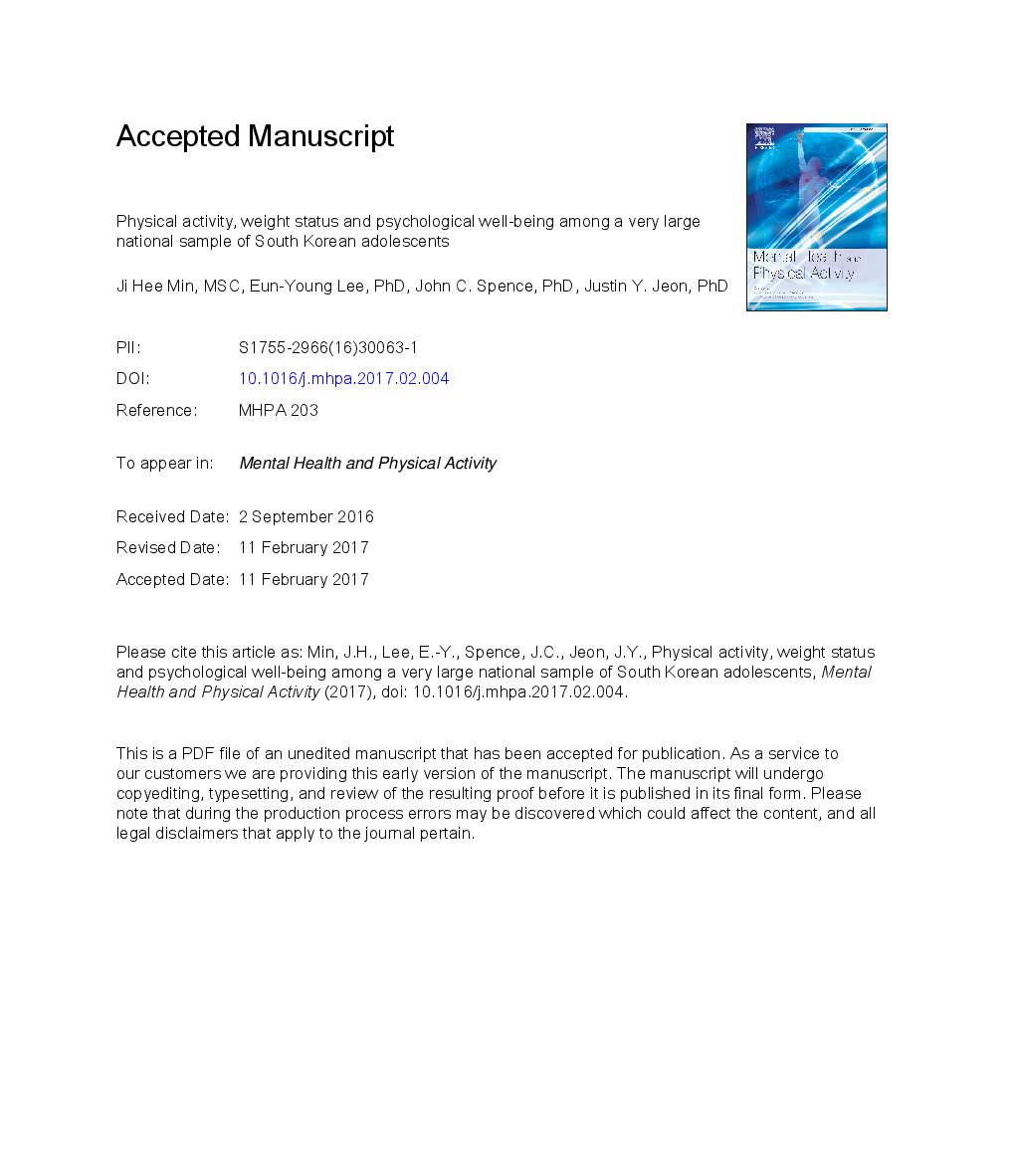This study examined associations between physical activity (PA), weight status, and psychological well-being (PWB) among South Korean adolescents. Pooled data from a total of 370,568 adolescents (M age = 15.05 years) who participated in the Korea Youth Risk Behavior web-based Surveys 2009â2013 were included in the analyses. Multiple logistic regressions were performed after adjusting for age, gender, region, economic status, and maturity. Though we found that overweight, compared to normal weight, was adversely associated with low/no stress (OR = 0.91, 95%CI = 0.88â0.94), engaging in PA at least once/week compared to none, regardless of weight status, was favorably associated with happiness (underweight: OR = 1.53, 95%CI = 1.18â1.98; normal weight: OR = 1.41, 95%CI = 1.28â1.54; overweight: OR = 1.51, 95%CI = 1.22â1.87) and low/no stress (underweight: OR = 1.26, 95%CI = 1.12â1.41; normal weight: OR = 1.35, 95%CI = 1.30â1.41 in normal weight; overweight: OR = 1.28, 95%CI = 1.16â1.40). Furthermore, after adjusting for covariates and weight status, a day increase in weekly vigorous PA was associated with higher likelihoods of reporting happiness (OR = 1.16, 95%CI = 1.15â1.17) and low/no stress (OR = 1.09, 95%CI = 1.09â1.10) (p-trend < 0.001). Similarly, a 1-day increase in strengthening exercise was associated with happiness (OR = 1.06, 95%CI = 1.05â1.06) and low/no stress (OR = 1.05, 95%CI = 1.05â1.06) (p-trend < 0.001). The observed patterns of the relationships suggest that PA participation, even for a minimum amount, may be beneficial to PWB. Also, PA may negate the association between overweight status and PWB among adolescents.


